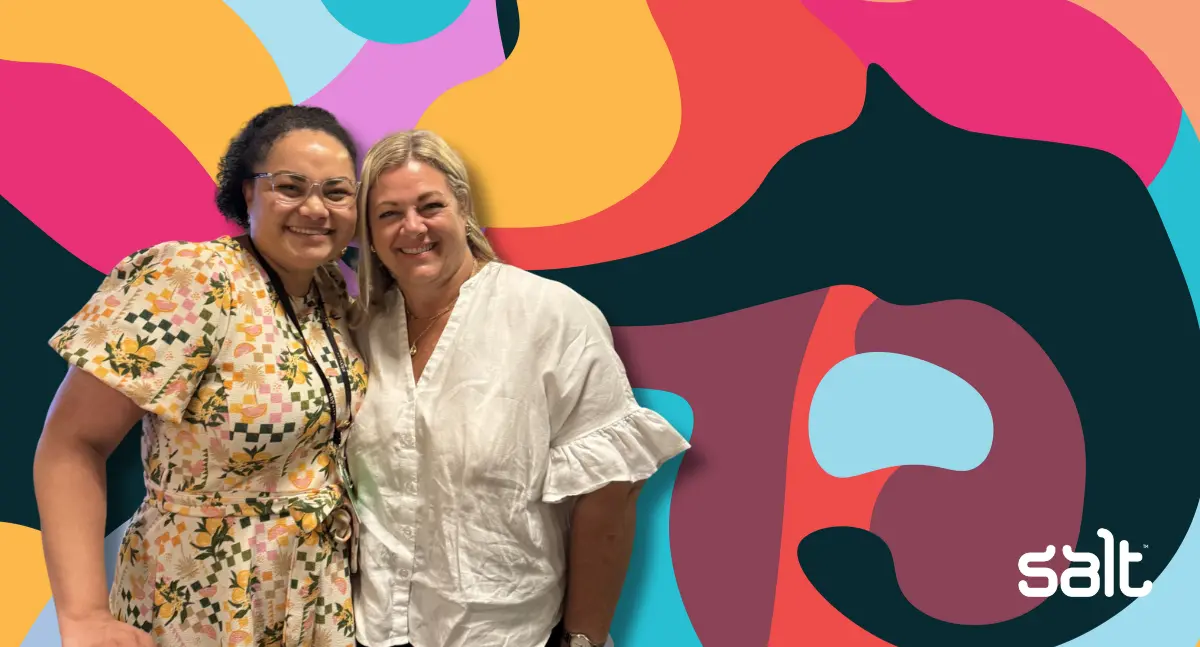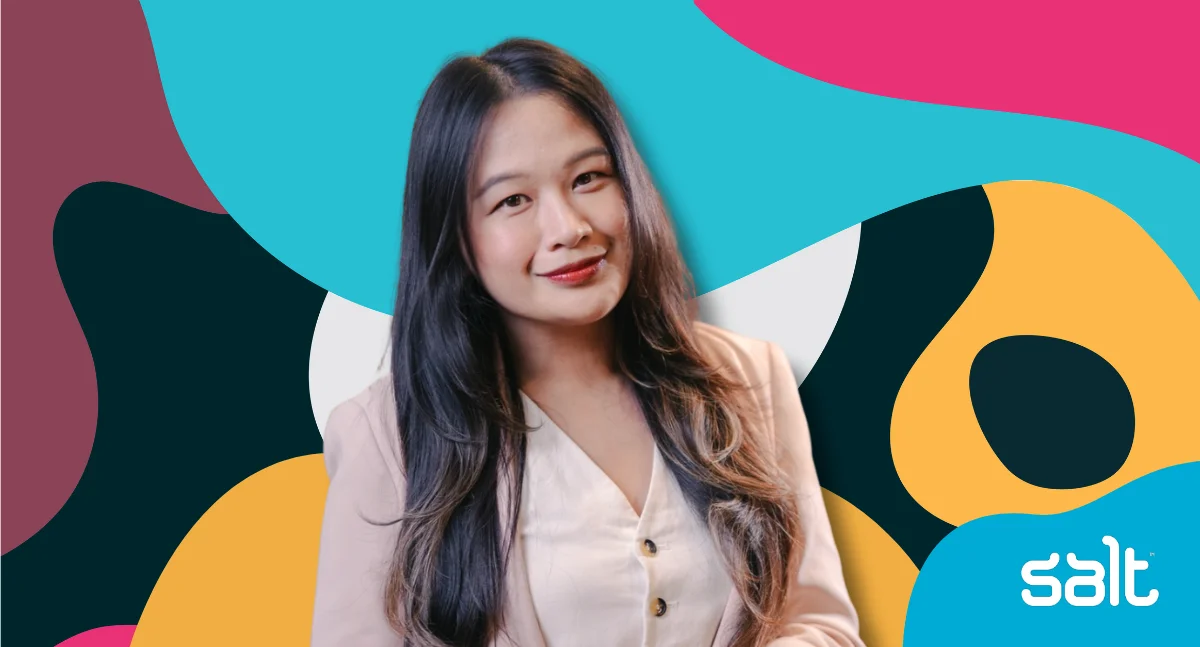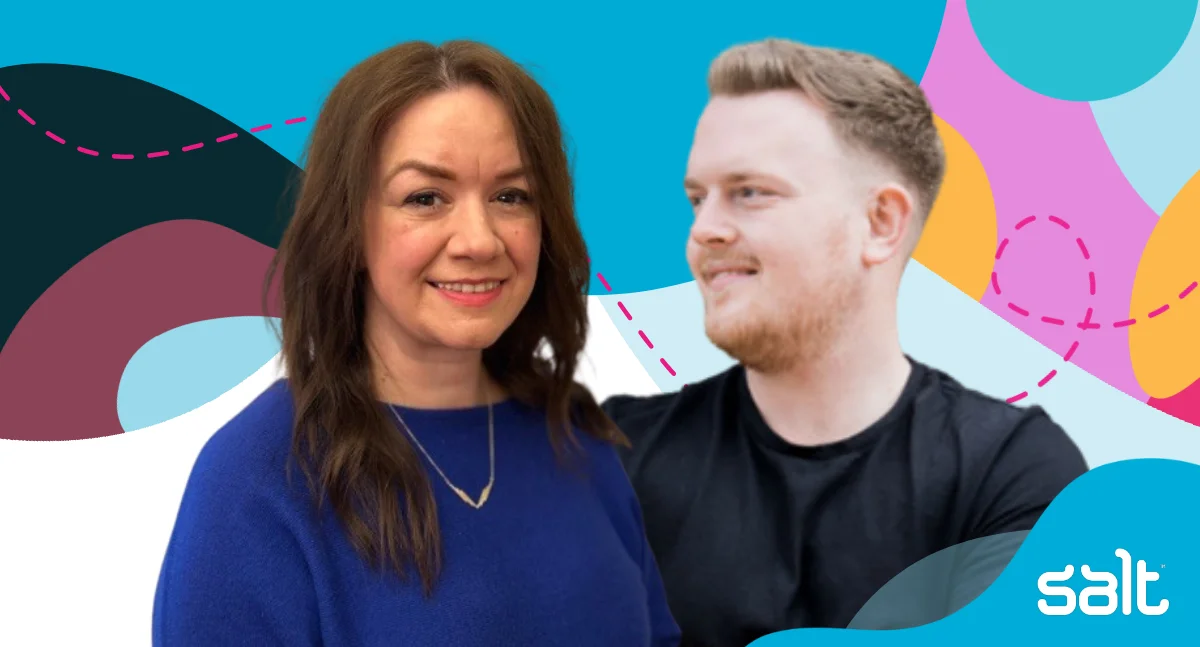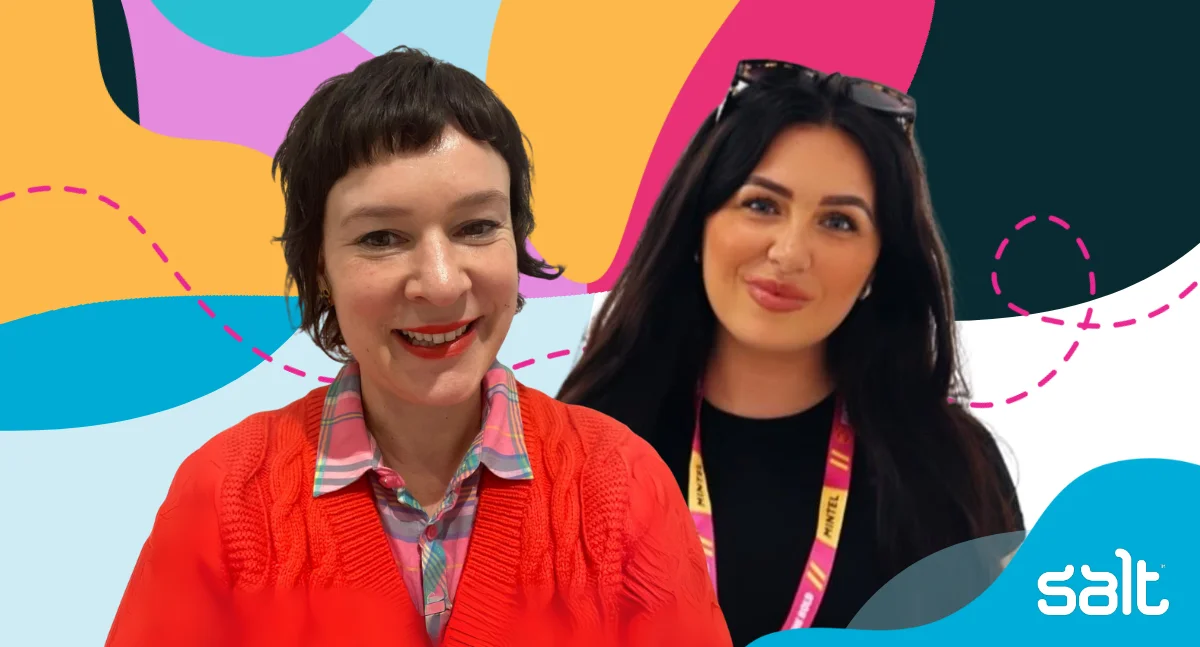
For Salt’s latest Women in Tech interview, Salt Founder and APAC CEO Jacqui Barratt and APAC Learning and Development Director Kelly Common caught up with Corrinne Pillay, Head of Digital Portfolio and Strategy at SkyCity Entertainment Group, to discuss how to encourage, empower and support women entering the tech industry.
Salt Recruitment’s Women in Tech #WiT interview series speaks with thought leaders from around the world to get their opinions and advice on how they have grown their careers in tech and overcome challenges and adversity during their careers.
What is the most exciting part of your work as SkyCity Entertainment Group’s Head of Digital Portfolio and Strategy?
Bridging strategy and execution: taking big, transformative ideas and turning them into tangible outcomes. I love that I can shape the organisation’s digital and technology agenda and ensure our investments deliver real business value. Right now, I am especially excited about establishing and building out a product practice and shifting to a value-driven delivery model – a fundamental shift for the organisation.
What has been your proudest or career-defining moment?
The proudest moment to date of my professional career was stepping into a leadership role in digital strategy at Port of Auckland at a point in time when the organisation needed more transparent governance, prioritisation, and strategic alignment.
I had to shift the perception of the digital function from a reactive, tactical partner to a strategic enabler, which required influencing at an executive level, establishing new ways of working, and ensuring the digital function had a seat at the decision-making table. Embracing this role was and remains a career-defining moment for me; it set me up for a career in digital strategy and portfolio governance. Witnessing the impact across the organisation – allowing for better decision-making, strategic investments, and a more empowered digital team – was also incredibly rewarding.
What should we be doing to encourage girls and women to consider a career in technology?
We need to normalise diversity in tech leadership roles and make it clear that you don’t need a traditional technical background to succeed in digital roles. Tech roles at all levels are changing; it’s no longer just coding and network engineering – tech encompasses strategy, product, data, UX, cybersecurity, and much more. When you evaluate traditional tech roles against emerging roles, you instantly see the difference in employee demographics – and we should highlight this. Visibility is key; when you see diverse people in roles, you realise those roles could also be an options for you.
In your opinion, what is the biggest obstacle to women’s career progression?
The self-doubt we all have: I have witnessed strong, capable women say “no” to opportunities because they don’t believe they meet the self-perceived levels of expectations associated with these opportunities. As women, we inherently put ourselves at the back of the line for leadership roles, and we don’t always speak up in meetings when we know the answer to a question or when there are opportunities to showcase our knowledge and capabilities. So, I have and do encourage women to apply for roles they don’t think they’re ready for due to assumptions they’ve made about certain levels of skills or expertise required to succeed – this isn’t always the case, and our self-saboteur will win if we let it.
How have the best allies throughout your career supported you?
The best allies have been leaders who have opened doors for me and put my name forward for opportunities before I even knew I was ready for them. I have been fortunate to have people around me who have advocated for me in rooms I wasn’t in, provided constructive feedback to help me grow, and encouraged me to accept challenges that stretch my capabilities and expand my knowledge.
You have active mentors: How valuable has mentorship been to you, and how have you found the right mentors?
Mentorship has been invaluable during my career; it has given me perspective and developed my confidence. My mentors have been instrumental in guiding and supporting me with my career decisions.
It’s so important to find the right mentors. You need people you know will have your back, take your call, or meet you for coffee. The right mentor will help you grow by challenging your assumptions and biases, support you as you navigate difficult decisions and situations, and push you out of your comfort zone. It’s also important to find a mentor who is aspirational to you and someone you have something in common with. These elements provide a good foundation for a mentor-mentee relationship, although friendship is also helpful. It’s important to me to have a mentor I like!
I’ve found my mentors through my professional networks, by never saying “no” to an opportunity, accepting that I don’t have all the answers, and asking for help!
You have had a varied career journey: What can individuals and organisations do to develop capabilities for and encourage non-conventional career paths?
I have been fortunate; the organisations I have worked for haven’t seen career progression as linear, and I have been surrounded by people who have seen my capability and potential. So, when opportunities have presented themselves, I have always said “yes”, which has allowed me to be challenged, to learn, grow and, ultimately, find my passion! My career journey has taught me that it’s key for organisations to stop relying on a linear career path for their people’s learning and development.
A leader once told me it was their job to develop me in my career, whether within that organisation or somewhere else. They were open to me wanting to grow professionally, regardless of whether I was going to be in my role in that organisation for 10 months or 10 years. Organisations must think about giving their people opportunities to move cross-functionally within the business to learn and build their capabilities. And they need to be open to hiring people with the right mindset – even if an individual doesn’t have traditional or ideal qualifications.
What can we do to promote and nurture women’s careers?
I am a strong advocate for amplifying women’s voices and supporting women on my team and in the organisations I work for to ensure they’re visible, they have a seat at the table, and their contributions are recognised. We need to normalise the concept that a single role does not define women – we have professional careers but are also mothers, daughters, wives, and caregivers – and these roles aren’t mutually exclusive. In fact, we can navigate and build successful careers while also fulfilling these important roles in our personal lives.
I’ve had many women ask me how they can develop their careers while managing family and personal responsibilities because, sadly, many organisations do not fully embrace or accept this concept. We must shift the collective mindset by showing that women can and will do it all – we can bring value to our careers and the professional environment without compromising our essential roles in other aspects of our lives. As leaders, we need to break down outdated norms and create environments where women can thrive on all fronts.
Who is your modern-day hero?
This question makes me nervous; I might be looked at differently if I don’t say the ‘right’ name. I also don’t want to mention the names people automatically think of, but I don’t want to give a cheesy answer, either!
If I’m honest, my heroes are the everyday heroes, the people I see giving their best every day to this thing we call life. We rarely know people’s stories or what they’re going through. So, when I see people having a bad day, I want to make it better, and when I see people being their authentic selves, I celebrate it!
Working mums are my modern-day heroes; they’re up at the crack of dawn to get themselves and their families fed and ready for the day, and then they keep themselves sane through a work day – trying not to think about getting to their kid’s school assembly or sports game and calculating how much time it will take them to get through traffic and across town to be a mum alongside the daily work challenges and pressure to be a more visible and present leader.
Members of the LGBTQIA+ community are also my modern-day heroes; they fight every day to be seen and accepted for who they are, not what they look like. They leave their houses every morning embracing their uniqueness with pride, knowing they will not be accepted by everyone they encounter, yet bravely doing it anyway. I celebrate authenticity and that we are all different – and that’s OK.
Do you have any media recommendations for staying updated?
At the moment, my favourite podcasts are The Diary of a CEO with Steven Bartlett, Habits of a Goddess with Jasmine Rasco, The Mindset Mentor with Rob Dial, and Black Girl Burnout with Kelley Bonner.
I’m currently reading Think Like a Monk by Jay Shetty, Good Strategy/Bad Strategy by Richard Rumelt, and 100 Things Productive People Do by Nigel Cumberland. I highly recommend The Alchemist by Paul Coelho, and a book that’s always on my bedside table is You Don’t Need An MBA by Alicia McKay. A mentor gave me this book to read many years ago, and it changed the way I look at my career.
I also recommend the CXO Transform website for anyone who wants to learn more about digital transformation.
What is your biggest stress reliever?
I would have said CrossFit, but I haven’t worked out in quite a while! Nowadays, my favourite ways to destress are finding a quiet moment for yoga, sitting in the shade and reading a book, catching up with friends for a good laugh, or – most importantly – sitting at the dinner table every night hearing my kids’ stories from the day!
What is one piece of advice you wish somebody had given you at the beginning of your career?
You don’t have to have all the answers! Early in my career, I thought leadership was about knowing everything. However, I’ve learned it’s more about creating clarity, enabling others, and providing a space for people to thrive and be authentically themselves.
What job did you dream of when you were a kid? What was your ‘Plan A’ career path?
Funnily enough, I think I’m on ‘Plan E’ or ‘Plan F’! As a young child, I dreamed of pursuing a career in medicine, but when I realised blood and broken bones weren’t my thing, I considered bio-medical technology and helping women go through IVF treatments.
What is a fun fact about you?
I’m not sure if this is a fun fact, but I was given the title of New Zealand’s Most Organised Pantry when my family and I were on the TV show ‘Eat Well for Less NZ’ in 2021!
Hiring? Salt connects you to outstanding top talent worldwide
If you’re interested in hearing about how Salt’s top talent recruitment experts around the world can help with your hiring right now, get in touch. Click below to contact the closest Salt team to you!
- Australia
- Canada
- Belgium
- Europe
- Hong Kong
- Malaysia
- Middle East and North Africa
- Netherlands
- New Zealand
- Singapore
- South Africa
- United Kingdom
- United States
Keep up with Salt’s top talent job market insights and hiring advice! You can keep in the loop by following us on. LinkedIn, YouTube, Facebook, Instagram, and Spotify.


